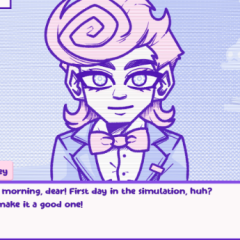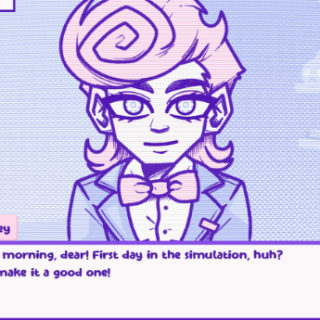Human Expenditure Program is an experimental narrative game that places the player in control of Harvey Harvington, a man confined within the boundaries of a structured system. The player is not simply an observer but an active participant in his daily life, making decisions that influence his well-being and eventual fate. Unlike traditional games that rely on progression or scorekeeping, this title focuses on responsibility and the impact of small but permanent actions.
Harvey As The Central Character
Harvey is not treated as a generic avatar. He reacts to choices, remembers past actions, and adapts his responses as the game continues. This design ensures that the player cannot approach the experience casually. Every interaction, whether supportive or dismissive, becomes part of Harvey’s memory and influences later scenarios. As a result, the game establishes a strong connection between the player’s behavior and Harvey’s evolving condition.
Core Gameplay Structure
The mechanics of Human Expenditure Program are built around short interactions and branching decisions. Players must provide care, manage tasks, and respond to moments that test their judgment. The simplicity of these actions is intentional, drawing focus away from complex systems and toward the consequences of decision-making.
Key elements include:
- Direct care tasks linked to Harvey’s survival
- A memory system that records past choices
- Scenarios that branch into different outcomes
- Multiple endings shaped by player behavior
- Voice acting that emphasizes Harvey’s presence
Themes And Reflection
By presenting itself as a “program,” the game draws attention to the artificial environment in which Harvey exists. The player becomes complicit in the structure, carrying responsibility for maintaining or disrupting it. This design explores questions of control, exploitation, and accountability. Instead of testing skill, the game tests moral awareness, pushing players to reflect on the weight of their actions.
Human Expenditure Program ultimately offers an experience built on consequence rather than reward. Each playthrough highlights the permanence of choice and the fragile nature of responsibility. By combining minimal mechanics with a strong focus on memory and reaction, the game turns simple tasks into a study of morality. It asks players how they will treat Harvey and what their treatment of him reveals about themselves.


































